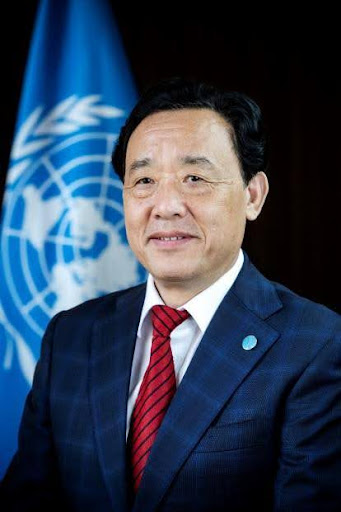By Kebba AF Touray
QU Dongyu, the Food and Agriculture Organization (FAO) Director General has said their orgnaisation is committed to translating the ‘Right to Food’ into reality.
He said this in a statement issued ahead of the World Food Day commemoration.
The FAO Director-General made this remark as the 2024 World Food Day commemoration draws near, on the theme: “Right to Foods for a Better Life and a Better Future.” According to him, this is a timely reminder that all people have the right to adequate food.
He said the need to get from ‘right’ to ‘reality’ compelled him to speak and emphasize the diversity, as well as availability, accessibility, and affordability of food for all, adding that right now, the world’s farmers produce more than enough food to feed the global population in terms of calories, but yet around 730 million people face hunger due to man-made and natural disasters such as conflicts, recurrent weather shocks, inequalities, and economic downturns.
On the role of his organisation, the FAO director said they are working hard to turn this right into reality, even in the face of a range of challenges. He said in conflict zones, access to food is being disrupted, leading to malnutrition and hunger, noting that in these and other hunger hot spots, FAO’s efforts are focused on rebuilding agricultural infrastructure to ensure food availability and accessibility for long-term food security, with all tools and channels available to them.
He said dietary changes and market concentration driven by globalization have led to increased health issues in many places including obesity and diabetes.
“Another harsh reality is that over 2.8 billion people in the world are unable to afford a healthy diet which is a leading cause of all forms of malnutrition,” he said.
He said the quality of life for half of the world urgently needs improvement.
He reiterated that there is a need for greater diversity of nutritious and affordable food to farmers for the benefit of all.
He said another crucial consideration is the long-term health and sustainability of the environment on which the world relies to produce these foods, and which also needs biodiversity to thrive.
The right to food, he added, will not in itself fill stomachs or put more diverse diets on tables, but will help frame our collective aspirations for the kind of just and equitable world that we all want to live in.
He said this is because it creates concrete obligations for governments and key partners to fulfill, and it should encourage them to do their part to ensure that it is realized.
“School feeding programs supported by FAO play important roles in addressing these challenges because they source food from local farmers and ensure children receive nutritious meals in schools,” he said.
According to the FAO Director General, the FAO is working with fishing communities and local governments in many countries across the regions to expand social protection and economic inclusion of the most vulnerable, by helping them diversify their production, build alternative income sources, and connect to new markets. He pointed out that the climate crisis poses significant threats to global food security, saying erratic weather patterns and natural disasters can devastate crops and livestock. He however stated that it is not just governments that they call upon to engage in this battle, but said with global collaboration from all sectors and partners such as the private sector, academia, civil society, and individuals, the collective action of everyone can drive substantial change.
“We can accomplish this by transforming global agro-food systems to ensure better production, better nutrition, a better environment, and a better life that will leave no one behind. Our actions are our future,” the FAO Director said.




















